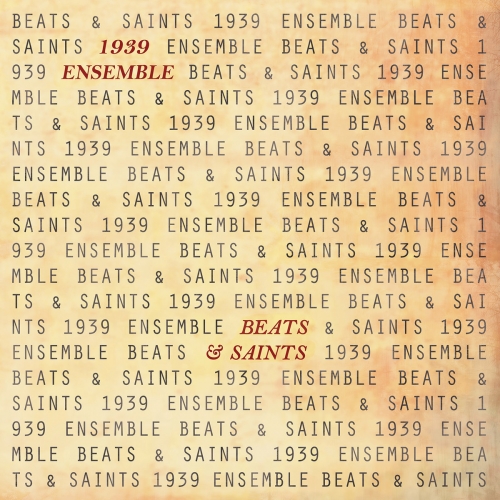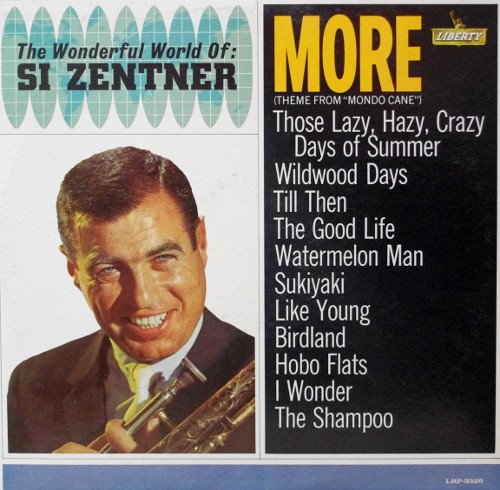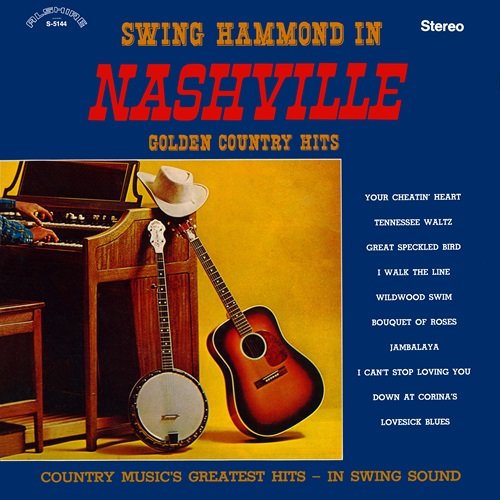Martha Argerich, Gidon Kremer - Bartok, Janacek: Violin Sonatas, Messiaen: Theme and Variations (1990)
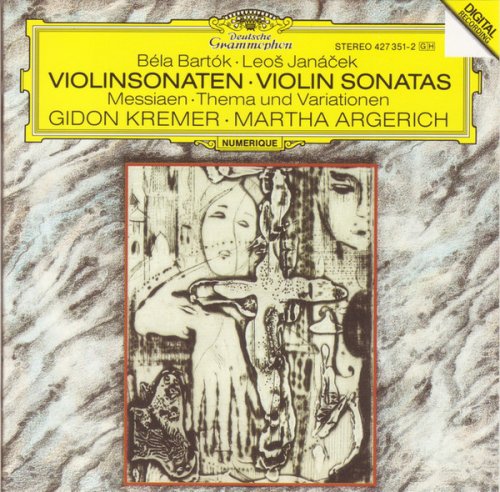
Artist: Martha Argerich, Gidon Kremer
Title: Bartok, Janacek: Violin Sonatas, Messiaen: Theme and Variations
Year Of Release: 1990
Label: Deutsche Grammophon
Genre: Classical
Quality: FLAC (image+.cue,log,scans)
Total Time: 57:19
Total Size: 253 Mb
WebSite: Album Preview
Tracklist: Title: Bartok, Janacek: Violin Sonatas, Messiaen: Theme and Variations
Year Of Release: 1990
Label: Deutsche Grammophon
Genre: Classical
Quality: FLAC (image+.cue,log,scans)
Total Time: 57:19
Total Size: 253 Mb
WebSite: Album Preview
Béla Bartók
Sonate fur Violine und Klavier No.1
1. Allegro appassionato
2. Adagio
3. Allegro
Leoš Janáček
Sonate fur Violine und Klavier
4. Con moto
5. Ballada. Con moto
6. Allegretto
7. Adagio
Oliver Messiaen
Thema und Variationen fur Violine und Klavier
8. Thème. Modéré
9. Variation 1. Modéré
10. Variation 2. Un peu moins modéré
11. Variation 3. Modéré, avec éclat
12. Variation 4. Vif et passionné
13. Variation 5. Très modéré
Performers:
Gidon Kremer, Violine
Martha Argerich, Piano
Like so many of his contemporaries Bartok underwent a period of artistic self-examination immediately after the First World War. The Violin Sonata No. 1 is the first result of that reappraisal and it has all the hallmarks of a style in transition—in other words, it is a jolly tough nut to crack, and it remains so even in a performance as consistently colorful and high-powered as Kremer and Argerich's.
The first movement, probably the most elusive of the three, emerges as a hyper-romantic drama, not inappropriately given the extensive influence of Szymanowski on Bartik at the time. The playing has tremendous eloquence and range of expression and there is not a dead note anywhere in the movement. The adagio is no less enthralling and the rhythmic elasticity of the finale is just what the music needs. Kremer's earlier Hungaroton/Conifer recording, dating from 1975, was a superlative account, and it remains a good recommendation if you are looking for both sonatas Bartok sonatas; but the finely-recorded new DG is even more dazzling.
In Janacek's Sonata it may be that such consistent strength of projection is too much of a good thing. Of course it has to be fiery and passionate, but there needs also to be a sense of when that passion is being lived out in the present and when just sadly recollected. Here Sitkovetsky and Gililov on Virgin Classics are the most perceptive duo, though as ES warned, the couplings are less special—the more adventurous collector may prefer the smoother Suk/Panenka version on Supraphon/Koch International, coupled with late romantic sonatas by Foerster and Novak.
The first movement, probably the most elusive of the three, emerges as a hyper-romantic drama, not inappropriately given the extensive influence of Szymanowski on Bartik at the time. The playing has tremendous eloquence and range of expression and there is not a dead note anywhere in the movement. The adagio is no less enthralling and the rhythmic elasticity of the finale is just what the music needs. Kremer's earlier Hungaroton/Conifer recording, dating from 1975, was a superlative account, and it remains a good recommendation if you are looking for both sonatas Bartok sonatas; but the finely-recorded new DG is even more dazzling.
In Janacek's Sonata it may be that such consistent strength of projection is too much of a good thing. Of course it has to be fiery and passionate, but there needs also to be a sense of when that passion is being lived out in the present and when just sadly recollected. Here Sitkovetsky and Gililov on Virgin Classics are the most perceptive duo, though as ES warned, the couplings are less special—the more adventurous collector may prefer the smoother Suk/Panenka version on Supraphon/Koch International, coupled with late romantic sonatas by Foerster and Novak.

![Pymlico - Core (2025) [Hi-Res] Pymlico - Core (2025) [Hi-Res]](https://img.israbox.com/img/2026-01/03/l6kyknum5dngl5wzvdg0owfy4.jpg)
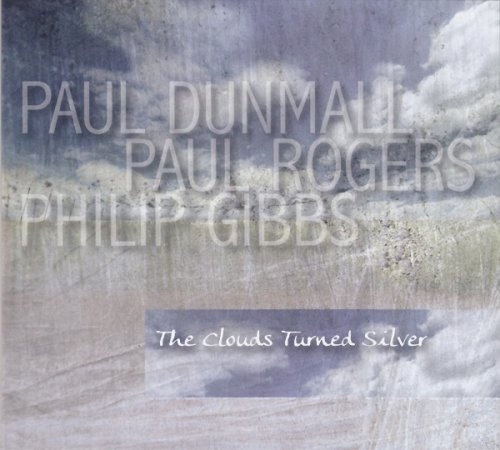
![Manny Albam and His Jazz Greats - Play Music from West Side Story (Remastered Edition) (2025) [Hi-Res] Manny Albam and His Jazz Greats - Play Music from West Side Story (Remastered Edition) (2025) [Hi-Res]](https://www.dibpic.com/uploads/posts/2026-01/1767257208_maws500.jpg)

